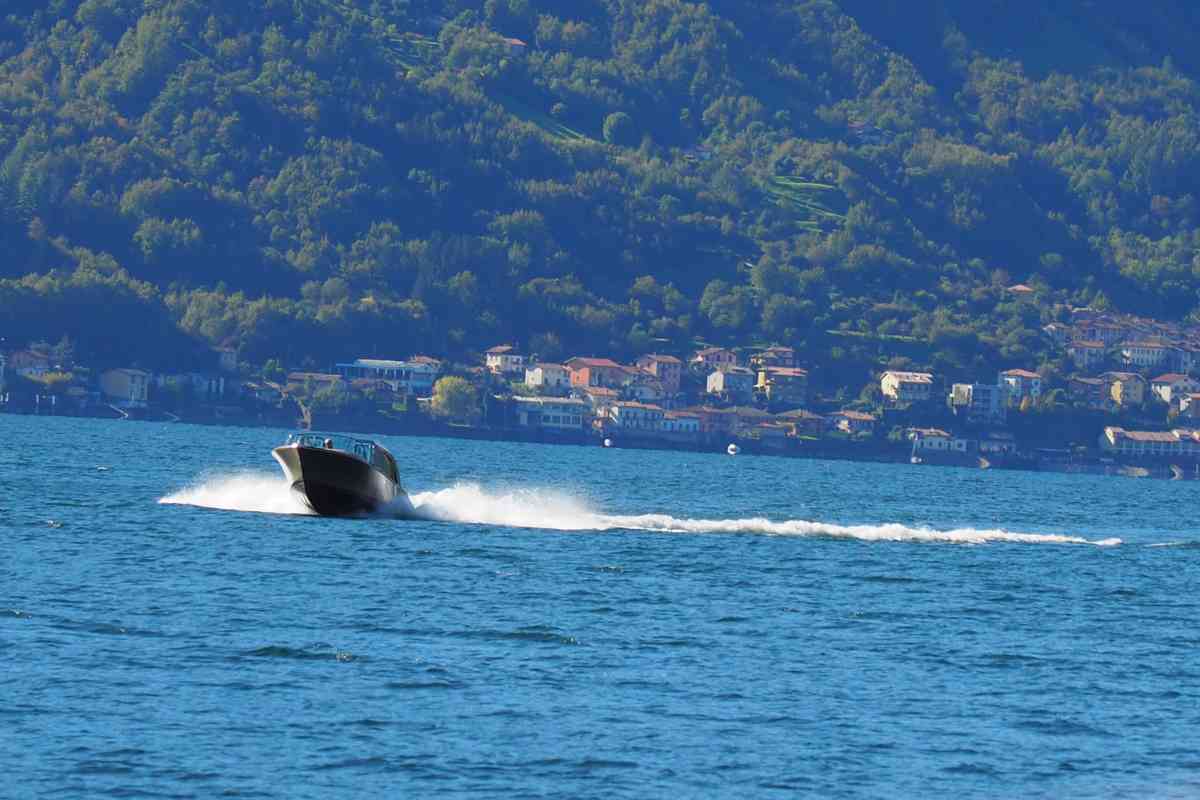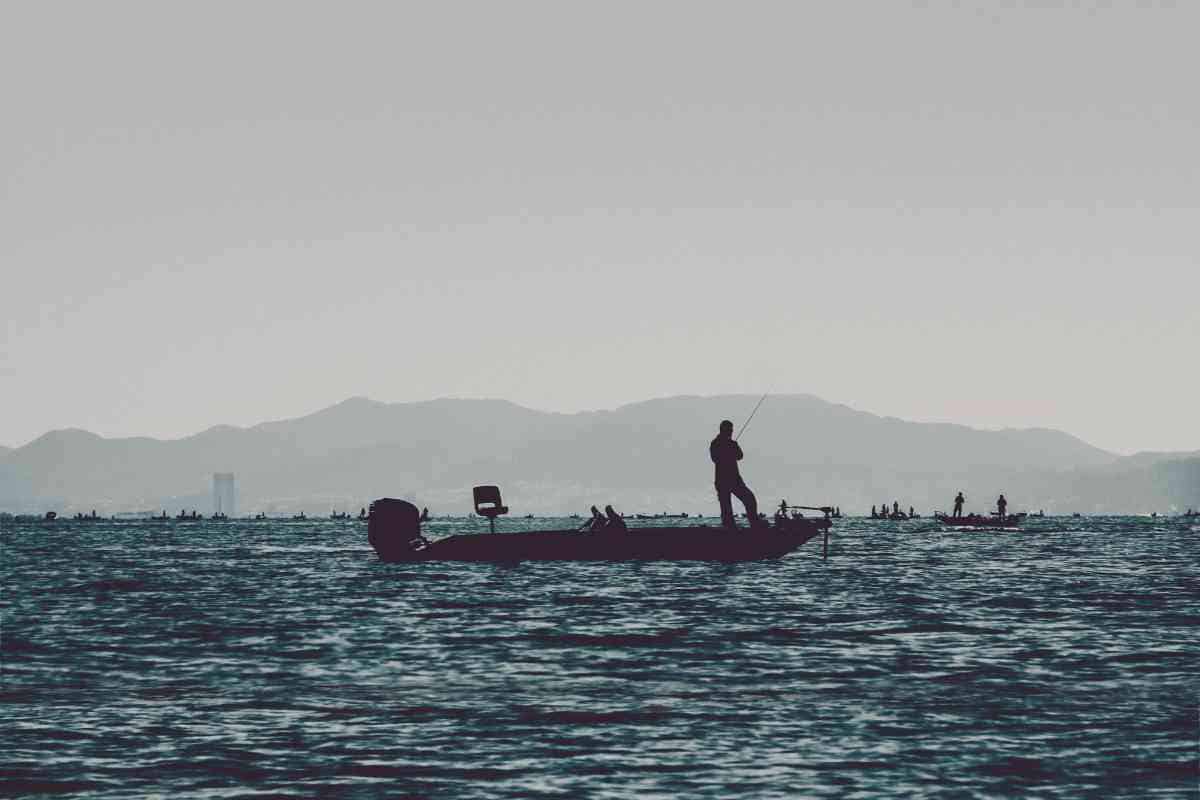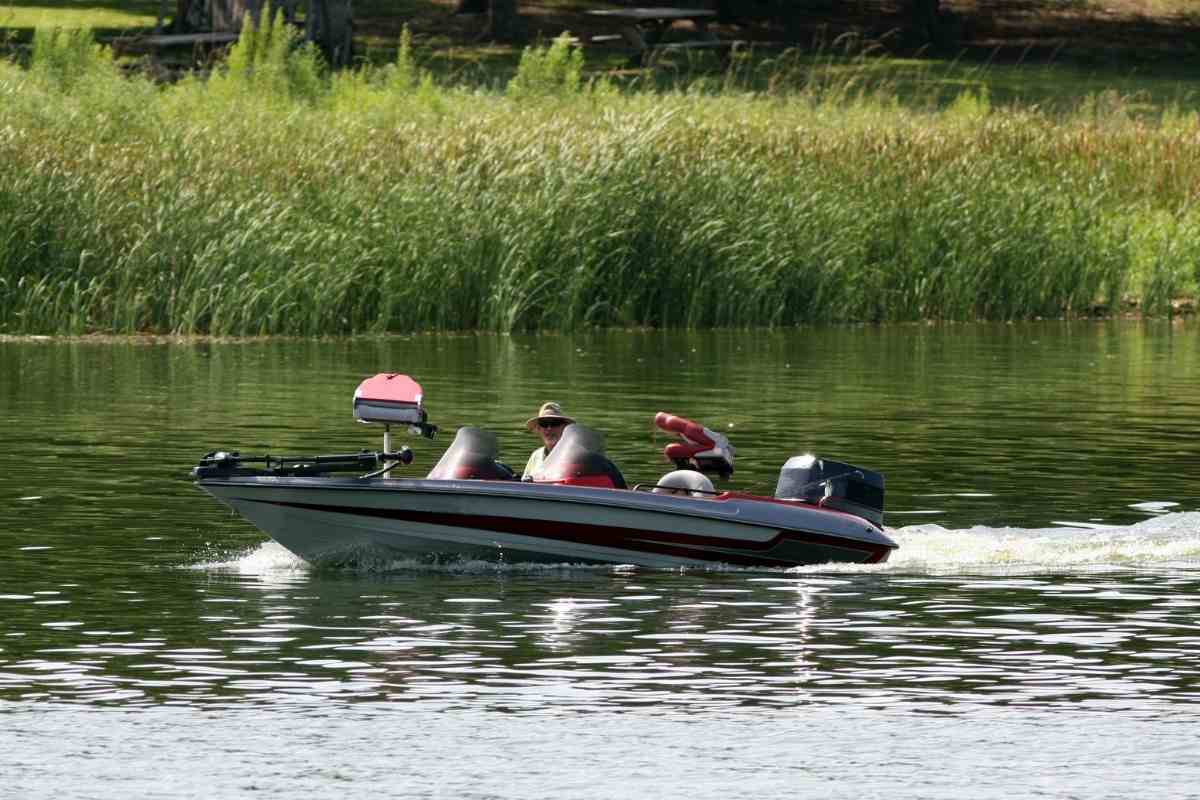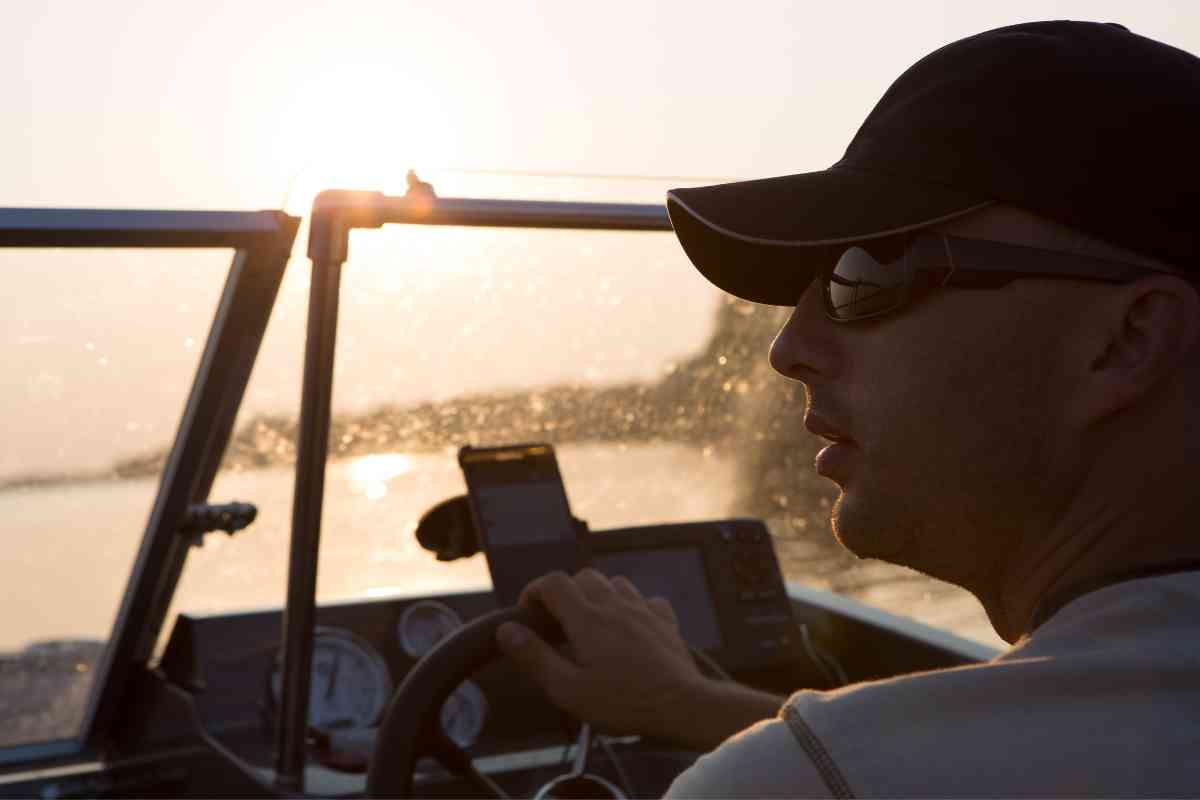How Fast Do Bass Boats Go?
Bass boats are perfectly designed to help you catch bass. Over the years they have gotten a lot faster.

How Fast Do Bass Boats Go?
Bass boats typically go from between 40 and 70 miles an hour. However, some boats are equipped with horsepower up to 350 and may achieve speeds up to 90 miles an hour or even up to 100mph under perfect conditions.
Here’s what you need to know about exactly how fast bass boats can go, what impacts their speed, and issues that may come up with very fast bass boats.
What Are Bass Boats?
The answer to this question is pretty clear in the name: bass boats are designed to be ideal for fishing for bass. However, there is a lot that actually goes into what makes a bass boat a bass boat, and there’s a fair amount of variety within these boats.
Bass boats are typically designed to go on lakes, streams, and rivers where bass are found. They are not equipped to deal with rough waves and generally do not go out in the ocean. Most bass boats have chairs that can swivel all the way around, allowing fishers to cast the line wherever they want.
Storage areas for tackle as well as livewells for bait and captured fish are typically built into the boat. Most bass boats have either flat bottoms or modified v-shaped hulls, which allow them to go into shallower water.
However, some of the fastest bass boats may be equipped with a sharp v-shaped bottom to increase speed and stability when going fast.
Bass boats are generally equipped with two motors that each has a separate purpose. The outboard motor is what gives the boat its power and speed and gets you to and from your destination.
The trolling motor is quieter and much less powerful. It is designed to move you stealthily around your fishing destination and avoid scaring off the fish.

Bass Boat Speed
Bass boats typically average between 40 and 70 miles an hour. Needless to say, this is a pretty significant difference. How quickly a bass boat can go depends on a number of factors, but perhaps the most important is the amount of horsepower that it’s packing. Here is how fast a bass boat is likely to go depending on its horsepower:
| Average Max Speed | Horsepower |
| 45 mph | 115 |
| 50 mph | 150 |
| 65 mph | 200 |
| 75 mph | 250 |
| 90 mph | 350 |
Horsepower isn’t the only thing affecting how fast your bass boat may go. Here are a few other essential elements to consider:
- Conditions. Moving over flat, calm water on a still day will allow you to go a lot faster than fighting the wind, tide, or chop.
- Weight. The heavier the boat, the slower it is likely to go. The amount of tackle on board and water in your livewell, as well as the number of people onboard, can all affect the boat’s weight.
- Length. Longer boats tend to get on a plane easier and go faster than shorter boats.
- Propeller Size and Pitch: The size and pitch of the propeller can also have a significant impact on the speed of the boat. A larger propeller with a steeper pitch will generally be able to generate more speed.
- Water Conditions: The conditions of the water can also play a role in the speed of the boat. Calm, smooth water will generally allow for faster speeds than choppy, rough water.
Why Are Bass Boats Getting Faster?

Over the years, the average speed of bass boats has steadily increased. Now, these boats are faster than they’ve ever been in the past. But why have they been getting steadily faster? Here are a few of the reasons that bass boats are going faster:
Competition
Bass competitions have become increasingly popular, and the money involved has gone up as well. As fishers compete for larger and larger pots, they are more and more willing to invest in a boat that is most likely to get them the winning fish, which often means a faster boat.
After all, the faster the bass boat, the faster you can get to the next likely fishing spot.
People Like Going Fast
Flying over the water at a good clip can be a lot of fun. As technology has improved and it has become possible for bass boats to move faster, people have invested in boats that can move them along at a more rapid rate than was possible before.
Many people also use their bass boats to multitask as fun recreational boats as well as for bass fishing, for which speed is convenient.
People May Have less Time to Fish
Whereas in the past spending an entire day out on the water was a great use of a weekend, many people have less time to spare these days. They may want to get out on the water and to their favorite fishing spot as quickly as possible because they don’t have too much time to waste on transit time.

Types of Bass Boats and Their Speeds
Bass fishing is a popular sport that requires specialized boats to get the job done. There are several types of bass boats available in the market, each with its own unique features and capabilities. Here are some of the most common types of bass boats and their average speeds:
| Boat Type | Average Speed |
|---|---|
| Aluminum Bass Boats | 35-50 mph |
| Fiberglass Bass Boats | 55-70 mph |
| Multi-Species Boats | 40-60 mph |
| Jon Boats | 15-30 mph |
Aluminum bass boats are the most popular type of bass boat due to their affordability and durability. They are lightweight and easy to maneuver, making them ideal for fishing in shallow waters. Their average speed ranges from 35-50 mph, which is sufficient for most bass fishing activities.
Fiberglass bass boats are the fastest type of bass boat available in the market. They are designed to be sleek and aerodynamic, allowing them to cut through the water with ease. Their average speed ranges from 55-70 mph, making them ideal for professional anglers who need to cover a lot of water quickly.
Multi-species boats are designed to be versatile, allowing anglers to fish for a variety of species in different types of water. They are larger and heavier than aluminum and fiberglass bass boats, making them more stable in rough waters. Their average speed ranges from 40-60 mph, which is sufficient for most bass fishing activities.
Jon boats are the smallest and slowest type of bass boat available in the market. They are ideal for fishing in small ponds and lakes, as well as shallow rivers and streams. Their average speed ranges from 15-30 mph, which is sufficient for most bass fishing activities.
Top Speeds of Popular Bass Boat Brands
When it comes to bass fishing, speed is an important factor to consider. A faster boat can get you to your fishing spot quicker and give you more time to catch fish. Here are the top speeds of some popular bass boat brands:
| Brand | Top Speed (mph) |
|---|---|
| Ranger | 70 |
| Nitro | 75 |
| Triton | 74 |
| Bass Cat | 72 |
| Phoenix | 72 |
It’s important to note that these speeds are based on optimal conditions and may vary depending on factors such as weight, weather, and water conditions. It’s also important to follow all boating laws and regulations and to always prioritize safety over speed.
When choosing a bass boat, it’s important to consider not only top speed but also other factors such as maneuverability, stability, and comfort. A fast boat may not necessarily be the best choice for everyone.
How To Make Your Bass Boat Go Faster
If you want to make the most of the horsepower you have, there are a number of things that you can do to increase the speed on any given boat. Here are a few things to consider:
Upgrade your engine
Another way to increase the speed of your bass boat is to upgrade your engine. A more powerful engine will allow you to achieve higher speeds. However, this can be an expensive option, so it’s important to consider your budget before making any upgrades.

Choose A Stainless Steel Prop
Most bass boats have an aluminum prop that comes standard. Aluminum props work just fine and are lightweight, but they are unlikely to move your boat along as quickly as a stainless steel prop.
At high speeds, aluminum tends to flex and change shape, which makes it less effective. By contrast, a stainless steel prop will retain its shape even at very high speeds.
Whatever kind of prop you have, be sure to check it often for any dents or imperfections which can negatively affect your speed.
Make Sure Your Prop Has Good Impact With The Water
As your boat goes faster and pushes up a wake, a gully of water will form around the prop. If the prop isn’t deep enough, it will lose efficiency by being exposed to the air.
Therefore, it’s important to make sure that your prop is sunk deep enough into the water to maintain good impact with the water even at high speeds.
Reduce Weight
If you’d rather a friend not come along, don’t hesitate to use weight as an excuse to keep them at home. The greater the weight on your boat, the slower it will go.
It’s also a good idea to trim off excess weight like unneeded anchors or tackle. Keep your livewells as low as possible and don’t fill them until you have something to put in them.
Stay Out Of Opposing Wind And Tide
Wind and tide pushing against you can do a lot to slow your boat down, so avoid them as much as possible. Sticking closer to the shore is a good way to get out of the wind most of the time and it may also reduce the effect of tide on your boat.
You can often tell where the tide is running fastest by looking for current ripples at the top of the water.
Improve your boat’s aerodynamics
The design of your boat can also affect its speed. By improving your boat’s aerodynamics, you can reduce drag and increase speed. This can be done by adding a hydrofoil to the bottom of your boat or by adjusting the trim angle of your engine.
Keep your boat well-maintained
Finally, it’s important to keep your boat well-maintained if you want to achieve maximum speed. Regular maintenance, such as changing the oil and replacing worn parts, can help your engine perform at its best.
Problems Caused By Fast Bass Boats
As bass boats have gotten faster, public outcry has risen against them. Many people argue that there is simply no reason for these boats to go so quickly. Many people are especially up in arms over the rarer 350 horsepower boats that can sometimes reach nearly 100 miles per hour under perfect conditions.
Largely due to this kind of outcry and in order to eliminate unfair advantages in competitions, many competitive fishing circuits have banned horsepower over 250. Here are some of the issues that have been brought up about fast bass boats:
- Pollution. All engines create some pollution, but the bigger the engine and the faster the boat, the more pollution they are likely to cause.
- Wakes on shorelines. Very fast boats produced large wakes, which can disturb natural plant growth on the shoreline and also make it difficult for people who are wading along the shore.
- Wear on docks. Significant wakes that frequently run up against docks can make them wear out faster, especially if boats that are tethered to the dock are constantly knocking against it.
- Hitting something. If you hit the bottom or any obstacles at a very fast speed, there is a good chance that you will be thrown from the boat or suffer some injury.
- Reduced reaction speeds. When you are moving at a very fast clip, you may not be able to react quickly enough to obstacles that come up into your path. Boats often aren’t easy to steer precisely at these kinds of speeds either.
- Breaking the law. Many waterways restrict speed to between 15 and 40 miles per hour or require that boats not create a wake, which may require even lower speeds.
- Knocking over other boats. The wake created by a very fast-moving bass boat can actually create enough of a disturbance to knock over other bass boats. Keep in mind that bass boats are not designed to handle waves well.
Enjoy Your Reasonably Fast Bass Boat
It is perfectly understandable for you to want a bass boat that can really move through the water. After all, you want to get your fishing location and start having fun as soon as possible.
However, it may be a good idea to temper your speed to within safe and respectful limits when bass fishing.
